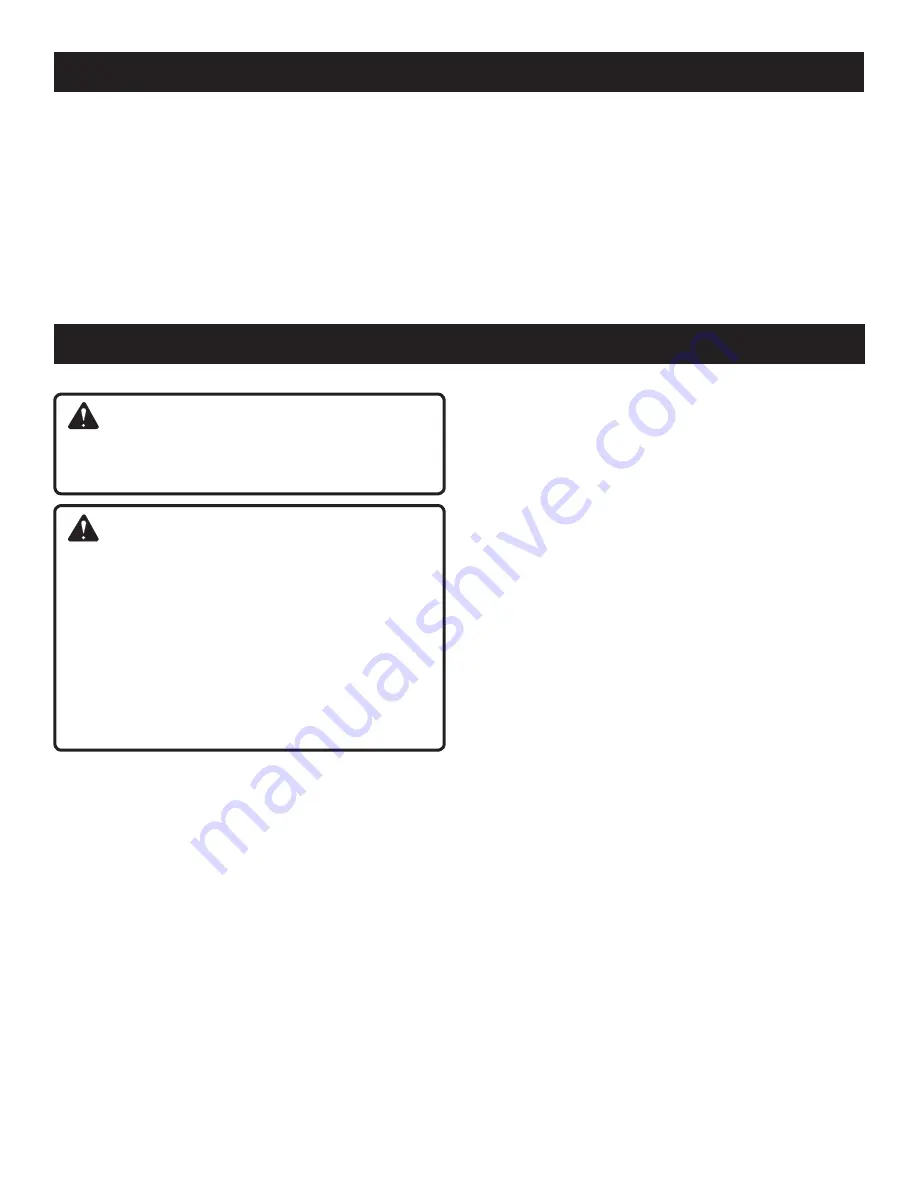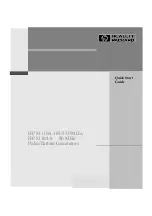
4 — English
IMPORTANT SAFETY INSTRUCTIONS
SPECIFIC SAFETY RULES
DANGER:
Risk of fire and serious burns:
Never remove fuel cap
when unit is running. Shut off engine and allow the unit
to cool at least five minutes. Remove cap slowly.
WARNING:
When this generator is used to supply a building
wiring system:
generator must be installed by a quali-
fied electrician and connected to a transfer switch as
a separately derived system in accordance with NFPA
70, National Electrical Code. The generator shall be
connected through a transfer switch that switches all
conductors other than the equipment grounding con-
ductor. The frame of the generator shall be connected to
an approved grounding electrode. Failure to isolate the
generator from power utility can result in death or injury
to electric utility workers.
Do not use this generator to provide power for emergency
medical equipment or life support devices.
This generator has a neutral floating condition. This means
the neutral conductor is not electrically connected to the
frame of the machine.
Always use a battery-powered carbon monoxide detec-
tor when running the generator. If you begin to feel sick,
dizzy, or weak while using the generator, shut it off and
get to fresh air immediately. See a doctor. You may have
carbon monoxide poisoning.
Place the generator on a flat, stable surface with a slope
of no more than 4°.
Operate outdoors in a well-ventilated, well-lit area isolated
from working areas to avoid noise interference.
Operating the generator in wet conditions could result in
electrocution. Keep the unit dry.
Keep the generator a minimum of 3 feet away from all
types of combustible material.
Do not operate generator near hazardous material.
Do not operate generator at a gas or natural gas filling
station.
Do not touch the muffler or cylinder during or immediately
after use; they are HOT and will cause burn injury.
Do not allow the generator’s gas tank to overflow when
filling. Fill to 1 in. below the top neck of the gasoline tank
to allow for fuel expansion.
Do not smoke when filling the generator with gasoline.
Shut down the engine and allow to cool for five minutes
before adding gasoline or lubricant to the generator.
Do not remove the oil dipstick or the fuel tank cap when
the engine is running.
Pay close attention to all safety labels located on the
generator.
Keep children a minimum of 10 feet away from the gen-
erator at all times.
The unit operates best in temperatures between 23°F and
104°F with a relative humidity of 90% or less.
Operating voltage and frequency requirement of all
electronic equipment should be checked prior to plug-
ging them into this generator. Damage may result if the
equipment is not designed to operate within a +/- 10%
voltage variation, and +/- 3 hz frequency variation from the
generator name plate ratings. To avoid damage, always
have an additional load plugged into the generator if
solid state equipment (such as a television set) is used.
A power line conditioner is recommended for some solid
state applications.
For outdoor use only.
NEVER ignore an automatic shutoff event. IF AUTOMATIC
SHUTOFF OCCURS – YOU MUST leave the area imme-
diately and relocate to an open outdoor area. Ventilate
the area thoroughly before occupying again. Ensure the
generator is located in an open, outdoor area. Always
point exhaust away from occupied structures. Never
run the generator in enclosed areas (e.g. not in a house
or garage). Failure to follow these instructions can lead
to carbon monoxide (CO) poisoning which can result in
death or serious personal injury.
For power outages, permanently installed stationary gen-
erators are better suited for providing back-up power to
the home. Even a properly connected portable generator
can become overloaded. This may result in overheating
or stressing the generator components, possibly leading
to generator failure.
Use only recommended or equivalent replacement parts
and accessories and follow instructions in the
Maintenance
section of this manual. Use of any other parts or failure
to follow maintenance instructions may create a risk of
shock or injury.
Maintain the unit per maintenance instructions in this
Operator’s Manual.
Inspect the unit before each use for loose fasteners, fuel
leaks, etc. Replace damaged parts.
Summary of Contents for RYi4022X
Page 67: ...NOTES NOTAS...









































